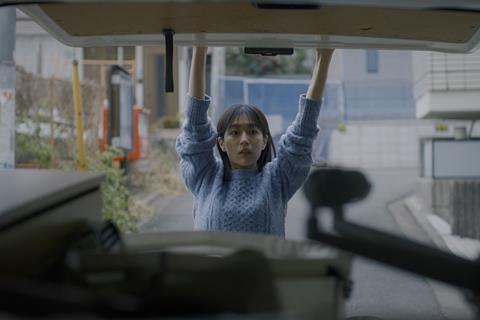Kenichi Endo stars in Yuiga Danzuka’s precise Directors Fortnight drama

Dir: Yuiga Danzuka. Japan. 2025. 115mins
Two siblings have very different emotional reactions to possible reconciliation with their estranged father in Yuiga Danzuka’s first feature Brand New Landscape, a measured and intimate exploration of familial and urban disconnection whose reach occasionally surpasses its grasp. Danzuka’s debut doesn’t always make the metaphor as smooth as it could be, but the contemplative tone, honest performances and hushed observation – reminiscent of Ryusuke Hamaguchi’s Evil Does Not Exist – make for elegant viewing.
An unvarnished exploration of the emotional fallout of indifference, guilt and redemption
Danzuka’s only film to date is the 2022 short Far, Far Away, and Brand New Landscape represents a significant leap in thematic scope and production polish. Festivals will be keen to hear a fresh voice from the region after the film premieres in Cannes Directors’ Fortnight. Art house distributors at home in Asia Pacific should take an interest, and the film’s 2:1 shooting ratio makes it ready for streaming platforms.
Until recently, granular examinations of families in crisis have been a rarity in Japanese cinema as well as in the wider APAC region, and the crises have usually pivoted on illness, infidelity or intergenerational conflict. In the past few years, however, filmmakers have been increasingly willing to drill down into more unspoken subject matter, such as Tom Lin’s Yen and Ai-lee from Taiwan, about domestic violence and Hong Kong director Anselm Chan’s The Last Dance, about the impact of rigorous faith on families. Brand New Landscape, while less topical, is nonetheless an unvarnished exploration of the emotional fallout of indifference, guilt and redemption within the family.
Set against the backdrop of a constantly evolving and frequently isolating Tokyo, Danzuka posits the family itself as a constantly evolving entity that can be equally as lonely and tricky to navigate. Brand New Landscape begins with the Takanos heading out on a family vacation; a rare occurrence due to landscape architect Hajime’s (veteran Kenichi Endo, Kubi) demanding work schedule. As 12 year-old Ren (Arao Rintaro) plays football and 18 year-old Emi (Ishida Riko) reads, Hajime and his wife Yumiko (Haruka Igawa) get into a recurring argument over his lack of presence.
He argues the extra work will help his firm and give him time down the road; she’s tired of the excuses. Danzuka’s long shots and still frames gracefully signal how the Takanos relate to each other as well as their space. Yumiko is never seen clearly; the most common sound is Hajime’s constantly buzzing phone. Eventually he heads back to Tokyo.
Ten years later, Ren (now played by Kodai Kurosaki, recalling a young Masaki Suda) and Emi (Mai Kiryu) are estranged from their father, who left Japan after their mother’s death. They awkwardly re-engage after he and Ren run into each other at a gallery hosting an exhibition of Hajime’s work. Notably, the show includes a reference to Miyashita Park in Shibuya, whose real-life redevelopment caused a stir for displacing the community of unhoused people who had been living there. Emi agrees to a reunion, if only to inform Hajime that she’s getting married.
Brand New Landscape does an elegant job of illustrating Ren and Emi’s unsettled lives and their divergent reactions to their parents’ absence. Well into their twenties, both siblings continue to wrestle with feelings of guilt, abandonment and anger. It’s the film’s quiet moments, such as Ren’s confusing reaction to seeing his father, or Emi’s doubts about where her romantic relationship is heading, that are strongest and most humanistic. Relative newcomer Kurosaki is pitch perfect in his studied aloofness, and Endo – best known for playing gangsters – takes the opportunity to be more than just intimidating, conveying Hajime’s own bewilderment over how to relate to his family.
Danzuka’s language veers off track in a curious third act turn towards fantasy, getting away from the introspection and controlled compositions of the first half to dabble with random direct camera work that seasoned directors might avoid – or might use more consistently. The attempt to liken Tokyo’s sprawling anonymity with familial disconnection is a loose link at best, but a minor quibble in an otherwise confident debut.
Production companies: Siglo
International sales: Luxbox, info@luxboxfilms.com
Producer: Kenji Yamagami
Cinematography: Koichi Furuya
Production design: Satoshi Nonogaki
Editor: Uichi Majima
Music: Ryo Teranishi
Main cast: Kodai Kurosaki, Kenichi Endo, Haruka Igawa, Mai Kiryu, Akiko Kikuchi, Aoi Nakamura, Shingo Nakayama
























